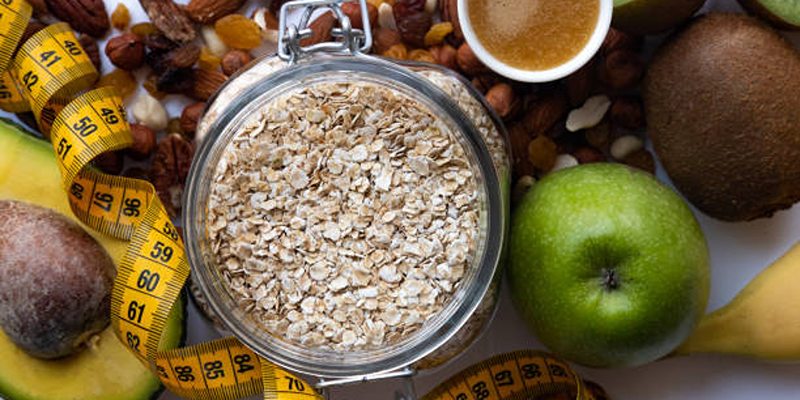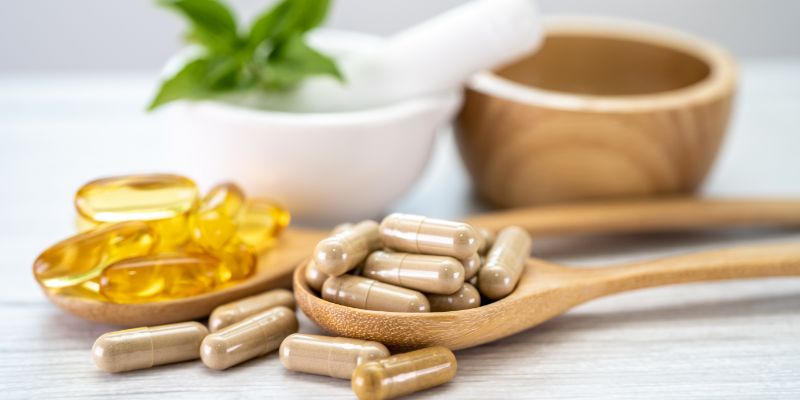Rutin, a potent bioflavonoid found in certain fruits and vegetables, has garnered attention for its potential health benefits. Known for its antioxidant properties, rutin may play an integral role in fortifying the body's defenses against oxidative stress and inflammation. Its therapeutic implications span improving blood circulation to strengthening blood vessels, which could have far-reaching effects on cardiovascular health. To tap into these benefits, understanding the safe dosage guidelines and identifying foods rich in rutin is essential. This section will delve into recommended dosages and explore a variety of dietary sources that can help incorporate rutin into your daily nutrition regimen, pointing you toward a path of enhanced well-being.
Health Benefits of Rutin
Rutin has been studied for its potential health benefits, and while research is still ongoing, it has shown promising results in various areas of health. Some of the key beneficial effects of rutin include:
- Antioxidant and anti-inflammatory effects: Rutin acts as a powerful antioxidant, helping to neutralize free radicals that can cause cellular damage and contribute to chronic diseases. It also has anti-inflammatory properties, which is crucial in preventing and managing inflammation-related conditions.
- Cardiovascular health: Rutin has been shown to improve blood flow and strengthen blood vessels, making it potentially beneficial for heart health. It may also help regulate cholesterol levels and reduce the risk of blood clots.
- Skin health: Studies have suggested that rutin may have a protective effect on the skin, helping to prevent UV-induced damage and reducing the appearance of wrinkles.
- Diabetes management: Rutin may help improve insulin sensitivity and regulate blood sugar levels, making it a potential aid in managing diabetes.
- Eye health: Some research has shown that rutin may play a role in protecting against age-related macular degeneration, a leading cause of vision loss in older adults.
Recommended Dosages of Rutin

The recommended dosage for rutin varies depending on the intended use and form of consumption. The following are general guidelines based on current research:
- For general health and well-being: A daily intake of 250 to 500 mg of rutin is considered safe.
- For cardiovascular health: Studies have shown positive results with daily doses of 500 to 1,000 mg.
- For skin health: Topical applications of rutin have shown benefits at concentrations of 3% or higher.
It is essential to consult with a healthcare professional before starting any new supplement regimen, as individual needs and reactions may vary.
Factors Influencing Dosage (Age, Health Status)
While there are general guidelines for rutin dosages, it is important to note that individual factors such as age and health status can influence dosage recommendations. For example, older adults may require a lower dosage due to changes in metabolism and potential interactions with other medications. Individuals with pre-existing conditions should also consult their healthcare provider before starting a rutin supplement.
Signs of Overdosage and Side Effects
While rutin is generally considered safe, consuming excessive amounts can lead to symptoms such as stomach upset, headaches, and nausea. It may also interact with certain medications, so it is crucial to discuss any potential risks or interactions with a healthcare professional before use.
Dietary Sources of Rutin
In addition to supplementation, incorporating rutin-rich foods into your diet can also provide health benefits. Some of the top dietary sources of rutin include:
- Fruits: Apples, figs, apricots, cherries, and grapes are all rich in rutin.
- Vegetables: Asparagus, broccoli, kale, onions, and peppers are excellent sources of rutin.
- Herbs: Dill weed, parsley, and rosemary all contain high levels of rutin.
- Buckwheat: This grain-like seed is a significant source of rutin, with up to 100 mg per serving.
- Tea: Both green and black tea are good sources of rutin.
Incorporating these foods into your diet can help boost your intake of rutin and contribute to overall health and well-being.
Incorporating These Foods into Your Diet
There are many delicious and nutritious ways to incorporate rutin-rich foods into your daily diet. Some ideas include:
- Adding berries or grapes to your morning oatmeal or smoothie.
- Creating a stir-fry with asparagus, broccoli, and peppers.
- Sprinkling fresh herbs onto salads or incorporating them into homemade dressings.
- Cooking buckwheat groats as a side dish or using buckwheat flour in baking.
- Replacing your regular tea with green or black tea for added rutin benefits.
By incorporating these simple and tasty food choices, you can easily increase your intake of rutin and promote better health.
Tips for Maximizing Rutin Intake

To get the most out of your rutin intake, consider these tips:
- Pair with Vitamin C: Vitamin C can enhance the absorption of rutin in the body. Try pairing foods high in vitamin C, such as citrus fruits or bell peppers, with rutin-rich foods.
- Choose organic: When possible, opt for organically grown fruits and vegetables to avoid potential exposure to pesticides and other chemicals.
- Diversify your sources: While certain foods may have higher levels of rutin, it is important to obtain a variety of nutrients from different food sources. So mix it up and try new fruits, vegetables, and herbs to get a diverse array of health-promoting compounds.
With its potential health benefits and numerous dietary sources, rutin is an excellent addition to any wellness routine. By incorporating it into your diet and following recommended dosages, you can take a proactive step towards better health.
Conclusion
Rutin may be relatively unknown, but its potential health benefits make it a rising star in the world of supplements. With antioxidant, anti-inflammatory, and cardiovascular benefits, it is an excellent option for promoting overall health and well-being. By understanding recommended dosages, dietary sources, and tips for maximizing intake, you can incorporate rutin into your daily routine with confidence. As always, consult with your healthcare provider before starting any new supplement regimen to ensure it is right for you.




